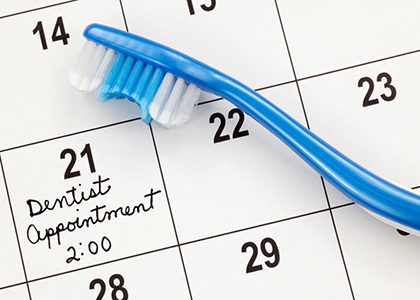Fissure Sealing: What Is It and Why Is It Important?
Fissure sealing is a preventive dental treatment aimed at protecting the chewing surfaces of permanent teeth. Its purpose is to prevent tooth decay by sealing the deep grooves of teeth with a special material.
At what age is it applicable? Who should consider fissure sealing, and what does the process involve? This article provides a detailed explanation of everything you need to know about fissure sealing!
What is Fissure Sealing?
Fissure sealing is a preventive dental procedure designed to prevent tooth decay. The small grooves on the chewing teeth are sensitive areas because they are hard to reach and thus less protected against bacteria. If not cleaned properly, tooth decay can develop. Fissure sealing helps minimize the formation of tooth decay by filling the deep grooves on the chewing surfaces with a special, liquid sealant that hardens and seals these areas. Fissure sealing is particularly useful for children and adolescents whose permanent teeth have just emerged, but it is also applicable to adults.
Benefits and Drawbacks of Fissure Sealing
Fissure sealing comes with numerous benefits that contribute to maintaining dental health:
Prevention of Tooth Decay: Sealing the deep grooves of the teeth prevents the accumulation of bacteria and food particles, thus reducing the risk of tooth decay.
Protection for Children and Adolescents: It is especially important for children and adolescents as their newly erupted permanent teeth are more susceptible to decay.
Simple and Pain-Free: The procedure is quick, painless, and minimally invasive, making it easy to perform during a routine dental check-up.
Long-term Protection: It provides long-term protection that can last for years, especially when combined with regular dental check-ups.
Cost-effective: Preventive treatment is more cost-effective than later dental interventions needed to treat decay and more serious problems.
The drawbacks of fissure sealing include a treatment duration of typically 15-30 minutes, which may cause discomfort for some children. Additionally, if not applied properly, the material can detach and may need to be reapplied. If the tooth is not adequately prepared before sealing, under-decay can occur, necessitating regular checks and occasional replacement.
Types and Materials of Fissure Sealing
Various materials are used in fissure sealing, each offering different benefits for protecting the teeth. The dentist chooses the most suitable one based on the patient’s individual needs.
Composite Resins
Composite resins are extremely popular in fissure sealing. These materials harden through photopolymerization, ensuring durability and a strong bond with the tooth. During the procedure, the resin is placed into the tooth's grooves and then hardened with a special light. These materials are aesthetically pleasing as they match the natural color of the teeth well.
Glass Ionomer Cements
Glass ionomer cements contain fluoride, which can help strengthen the teeth and prevent decay. These materials are self-hardening and have good biocompatibility. Although less aesthetic than composite resins, they provide effective protection against tooth decay.
Resin-modified Glass Ionomer Cements
Resin-modified glass ionomer cements combine the benefits of composite resins and traditional glass ionomer cements. These materials are durable, contain fluoride, and offer better aesthetic results than conventional glass ionomer cements. During the procedure, the cement is placed into the grooves and then hardened, ensuring durable protection.
Who Should Consider Fissure Sealing and When?
Fissure sealing is particularly recommended for children and adolescents with newly erupted permanent teeth. The ideal time for applying fissure sealing is within the first few months of the eruption of the molars, as the teeth are undamaged and more susceptible to decay at this stage.
Children: Around the ages of 6-7 when the first permanent molars erupt, and again at 11-13 years when the second permanent molars appear.
Young Adults and Adults: Recommended for adults with deep grooves that are difficult to clean and thus more prone to decay.
Fissure sealing is not only important as a preventive measure but also for those who have already experienced tooth decay issues. Timely application of fissure sealing can significantly reduce the occurrence of tooth decay, contributing to the long-term preservation of healthy teeth.
Process of Fissure Sealing
Fissure sealing can be performed during a dental visit. Here are the essential steps involved in the process:
Preparation: The treatment starts with thorough cleaning of the tooth to remove any plaque and bacteria. The dentist uses special tools to clean the chewing surface to ensure proper adhesion of the sealing material.
Acid Etching: An acidic solution is then applied to the chewing surface to slightly roughen the enamel. This step helps the sealing material bond more strongly to the tooth.
Application of Sealing Material: After removing the acidic etchant, the sealing material is applied in liquid form to the chewing surface. It fills the grooves and indentations, then is hardened using a special light.
Checking and Adjustments: After the sealing material has hardened, the dentist checks the quality of the seal and makes adjustments if necessary. The material forms a smooth, even layer that protects the teeth from decay.
Treatment Duration and Follow-up
The entire treatment typically lasts 15-30 minutes and does not require any special follow-up care. During regular dental check-ups, the dentist will check the condition of the sealing material and reapply it if necessary.
Frequently Asked Questions About Fissure Sealing
Is the treatment painful? Fissure sealing is not a painful procedure. No drilling or anesthesia is required, so patients may only experience minor discomfort.
When can I eat after fissure sealing? You can eat immediately after fissure sealing as the material hardens quickly and solidifies completely. However, it's advisable to avoid very hard or sticky foods for the first few hours.
What is the cost of fissure sealing? The cost of fissure sealing varies; for an accurate quote, please visit the prices section.
How long does the effect of fissure sealing last? The effect of fissure sealing can last for years, but regular dental check-ups are necessary to ensure the integrity and effectiveness of the material.
Who is fissure sealing recommended for? Fissure sealing is primarily recommended for children and young people, but it can also be beneficial for adults, especially those with deep grooves.
How long does the treatment take? Fissure sealing generally takes 15-30 minutes per tooth, including preparation and application of the material.
What materials are used in fissure sealing? The most common materials used in fissure sealing are composite resins, glass ionomer cements, and resin-modified glass ionomer cements, each providing durable and effective protection.





















